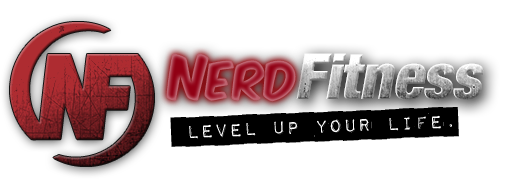

lowestprime
Members-
Posts
7 -
Joined
-
Last visited
About lowestprime
-
Rank
Newbie
-
Thanks for the insight. Since the time of the post you quoted I've switched to only eating .6g-.8g protein/lb lbm. I track ketone levels with urine test strips and a bioelectric impedance scale which I'm aware are both not very reliable or accurate but for my purposes they're consistent enough to visualize trends.
-
What if I alternate day fast (36hrs between meals; one meal every other day) with a 3.5kcal deficit per week and a 200-300kcal surplus above tdee on eating+gym days (eating ketogenically of course and intaking ~.8g protein/lb lean body mass)? Would this allow me to build muscle and loose fat each week? Why or why not (some relevant studies would be helpful in providing clarity)? My current stats are male, 20, 150lbs, ~15%bf, ~120lb/lbm). I know there's a massive hgh increase brought on by fasting and the caloric surplus on workout days seems adequate for muscle growth. it seems like the perfect plan. I've never seen anyone mention this online though? Thoughts? Has anyone successfully tried this before as this is the nutrition/workout plan I am roughly following right now. The part that still confuses me is would I just be gaining and loosing muscle every other day, or would I be able to retain the muscle I gained on the eating/workout days through the protein sparing affects of hgh during the ~36hr fasting window? How does a weekly deficit work the same as a daily one? Would eating at a caloric surplus every other day result in fat gain that may or may not be negated by the following 36hrs of fasting especially while eating ketogenically (≤20g carbs per day)? Thanks in advance for any wisdom or nutritional research papers.
-
Thats not what I meant. I want to cut down TO 8-10%bf FROM my current ~14% ( so I can see my abs in poor lighting without flexing in the mirror). At my current bf%, I can only see my upper 4 abs, serratus, and some of my obliques while flexing in adequate lighting, the bottom 2 are still covered in a thick enough layer of fat to prevent me from seeing them at all. I just want to develop those lower 2 abs and my obliques a bit more and uncover them by loosing those last few lbs of body fat, dropping to 8-10%bf in the process. That's my goal and I'm close.
-
I work out 3 days a week (swim 2 abs all 3). Planning to add other body groups/workout days in the next few weeks). I want to drop to 8-10 bf% (@13.5%bf 144 lbs rn) and add 20lbs+ of lean muscle over the next 2 years (mainly in the triceps obliques biceps back lats and chest). I currently fast the entire day (only water so 36hrs between meals and then workout before my meals on the eating days where I eat my single meal of the day) on Monday, Wednesday, and Friday, and I eat 10% above my tdee (ketogenic high protein fiber and fat) on the other days. I have lost ~1lb per week so far and ~2%bf per month (started at 16.5%).
-
Ah... so trying to build muscle in a caloric deficit (i.e. recomping or being in a low energy state) may cause shp-2 activity which may activate s6k1 to limit muscle hypertrophy? http://www.jbc.org/content/282/10/6946.long#fn-1 " These results implicate SHP-2 as an early mediator in the S6K1 signaling pathway to limit cell growth in low energy states. " https://en.wikipedia.org/wiki/P70-S6_Kinase_1 "Ribosomal protein S6 kinase beta-1 (S6K1), also known as p70S6 kinase " " The p70S6 kinase functions as part of a signaling pathway that includes mTOR (the mechanistic target of rapamycin). mTOR can be activated in distinct ways, thereby activating p70S6K. For example, branched chain amino acids such as leucine are sufficient to activate mTOR, resulting in an increase in p70S6K phosphorylation (and thereby activating it). " " Physical exercise activates protein synthesis via phosphorylation (activation) of p70S6K in a pathway that is dependent on mTOR, specifically mTORC1. This has been demonstrated by using an inhibitor of mTOR, rapamycin, to block an increase in muscle mass, despite increases in load (e.g., exercise). Exercise has been shown to increase levels of IGF-1 in muscle, thus inducing the IGF-1/PI3K/Akt/p70S6K signaling pathway, and thereby increasing the protein synthesis required to build muscle. " https://en.wikipedia.org/wiki/PTPN11 " Tyrosine-protein phosphatase non-receptor type 11 (PTPN11) also known as... SHP-2"
-
Why not muscle hypertrophy via high protein intake with calories at tdee or slightly lower? We need to stop blindly accepting things without questioning and thorough study. Why physiologically is a caloric surplus be necessary to gain muscle assuming protein content is kept high (1-1.3g/lb of body weight)? Have studies shown this to be true, that you cant gain muscle without eating at a caloric surpus? On a physiological level, carbs are not needed to build muscle and assuming you are eating enough protein, the pathway required to build muscle does need energy in addition to this protein, but not necessarily a surplus. Even when eating in a deficit, your body can access the energy it needs to build muscle from stored fat (recompositioning). Why is recompositioning slower than standard muscle hypertrophy during a caloric surplus? Why would this energy required to build muscle have to come from outside sources? I need studies and physiological information about muscle hypertrophy requiring a caloric surplus first before I will just accept what I'm being told while my intuition is telling me it shouldn't be true. watch: https://youtu.be/MFo_wQq8M3Q https://youtu.be/DOy-QDS7axU https://www.youtube.com/watch?v=ud7CnPJcK6U Links of interest (please add more): https://en.wikipedia.org/wiki/Muscle_hypertrophy https://sci-fit.net/bulking-deficit-gaining/ https://academic.oup.com/ajcn/article/103/3/738/4564609 https://academic.oup.com/ajcn/article/99/2/276/4571468 https://academic.oup.com/ajcn/article/89/1/161/4598235 https://www.ncbi.nlm.nih.gov/pubmed/26817506 https://jissn.biomedcentral.com/articles/10.1186/1550-2783-11-19 https://jissn.biomedcentral.com/articles/10.1186/s12970-015-0100-0 https://www.dropbox.com/s/bvia8flijju4hf1/J. Nutr.-2015-Campbell-2076-83.pdf?dl=0 https://www.ncbi.nlm.nih.gov/pubmed/26248565 https://www.ncbi.nlm.nih.gov/pubmed/23679146 https://www.ncbi.nlm.nih.gov/pubmed/24595305 https://www.ncbi.nlm.nih.gov/pubmed/26817506 https://www.ncbi.nlm.nih.gov/pmc/articles/PMC1373635/ https://www.ncbi.nlm.nih.gov/pubmed/17229738 https://idmprogram.com/fasting-and-muscle-mass-fasting-part-14/ https://www.ruled.me/mythbusting-training-on-keto-diet/
